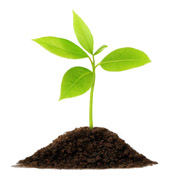Agronomy and Horticulture, Department of
Plant and Soil Sciences eLibrary
Erosion
Document Type
Learning Object
Date of this Version
2005
Citation
Plant and Soil Sciences eLibrary (PASSeL) Lesson
Abstract
Soil erosion is a global problem. Each year, erosion costs billions of dollars in loss of land productivity, damage from soil sediment deposition and subsequent restoration costs, and harm to plant, animal, and human health due to air and water pollution. This lesson will consider the impacts of erosion at local, regional, national, and international levels. It will discuss how erosion occurs and the main factors that contribute to erosion. In addition, the different types of water and wind erosion will be discussed. The lesson is written to target educational needs of lower-level undergraduate students and is open for use by the public and educational institutions. Depending on the goals/objectives of a course, training, or workshop, part of or all sections of the lesson could be used.
Upon completing this lesson, a student should be able to:
- Describe the impacts of erosion on soil, water, and air quality.
- Describe the processes in water and wind erosion.
- Identify and analyze factors contributing to water and wind erosion of soil.
- Identify and describe the types of water and wind erosion.
Assessment
- Self-paced questions (“thinking questions”) are embedded within the lesson and are also available in printable worksheet format at the beginning of each page. These self-paced or thinking questions are intended to generate discussion. They can be used in classroom small group discussion. If the course is distance and the lesson is used to support course objectives, they can be used as online discussion threads.
- Objective-based questions focusing on the fundamentals or principles of soil erosion and its impacts can be developed as an assessment tool.
- A local, national, or international erosion problem can be used as a case-study project for students to apply erosion and erosion control principles.
Modules:
- Lesson home
- Erosion- Introduction
- Erosion- Think about it...
- What is Erosion?
- Impacts of Erosion on Soil, Air, and Water Quality
- Case Study on a Local Level
- Case Study on a National Level
- Case Study on a World Level
- Impacts of Erosion on Air Quality
- How Water and Wind Erosion Occur
- Factors Contributing to Water and Wind Erosion of Soil
- Factors Continued...Climate
- Factors Continued...Soil Properties
- Factors Continued...Soil Cover
- Factors Continued...Topography
- Factors Continued...Land Management
- Factors Continued...Soil Surface Roughness
- Types of Water and Wind Erosion
- Water Erosion
- Wind Erosion
- Summary
- Glossary
- Videos



Comments
Copyright © 2005 Martha Mamo and Patricia Hain. Used by permission.
JNRLSE approved 2005
This project was supported in part by the National Research Initiative Competitive Grants CAP project 2011-68002-30029 from the USDA National Institute of Food and Agriculture, administered by the University of California-Davis and by the National Science Foundation (NSF), Division of Undergraduate Education, National SMETE Digital Library Program, Award #0938034, administered by the University of Nebraska. Any opinions, findings, conclusions, or recommendations expressed in this publication are those of the authors and do not necessarily reflect the views of the USDA or NSF.
Development of this lesson was supported in by USDA Cooperative State Research, Education, & Extension Service (USDA-CSREES), under Contract Number 2003-51130-02072. Any opinions, findings, conclusions or recommendations expressed in this publication are those of the author(s) and do not necessarily reflect the view of the USDA-CSREES.